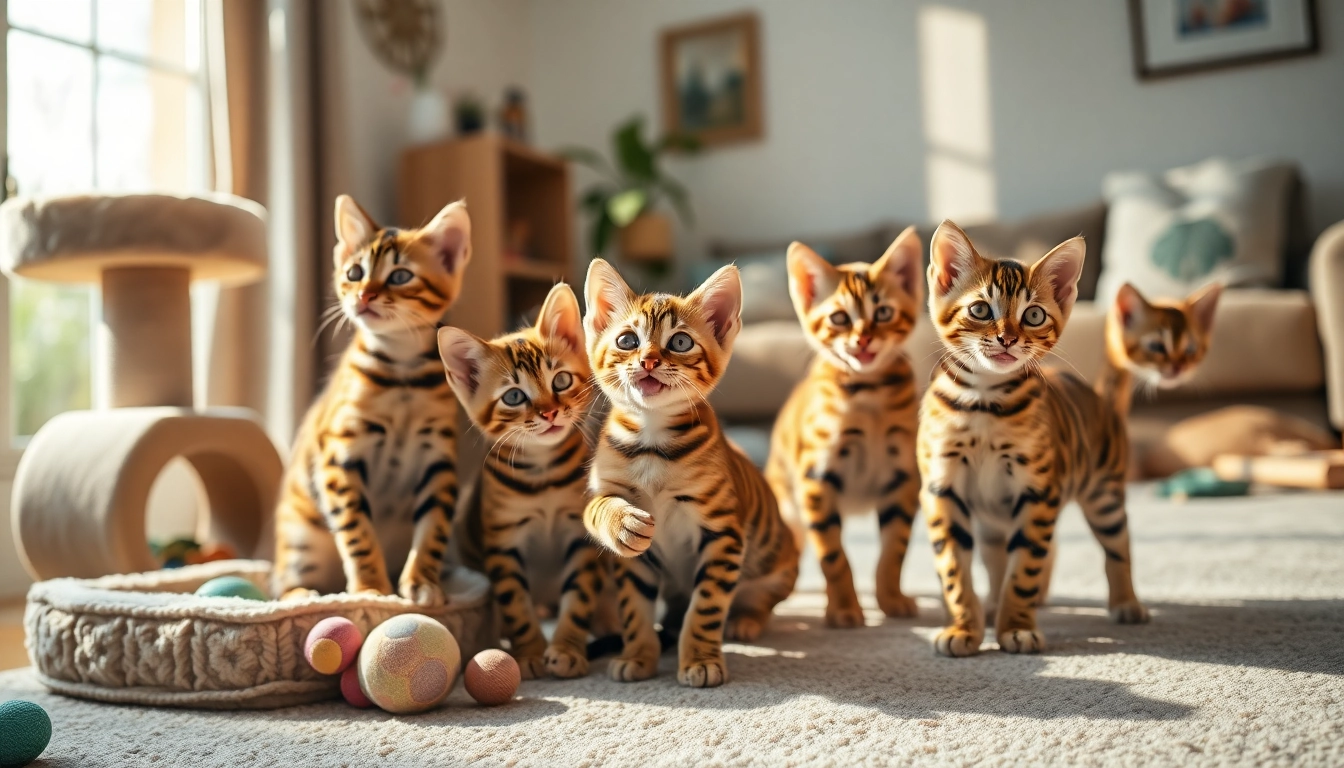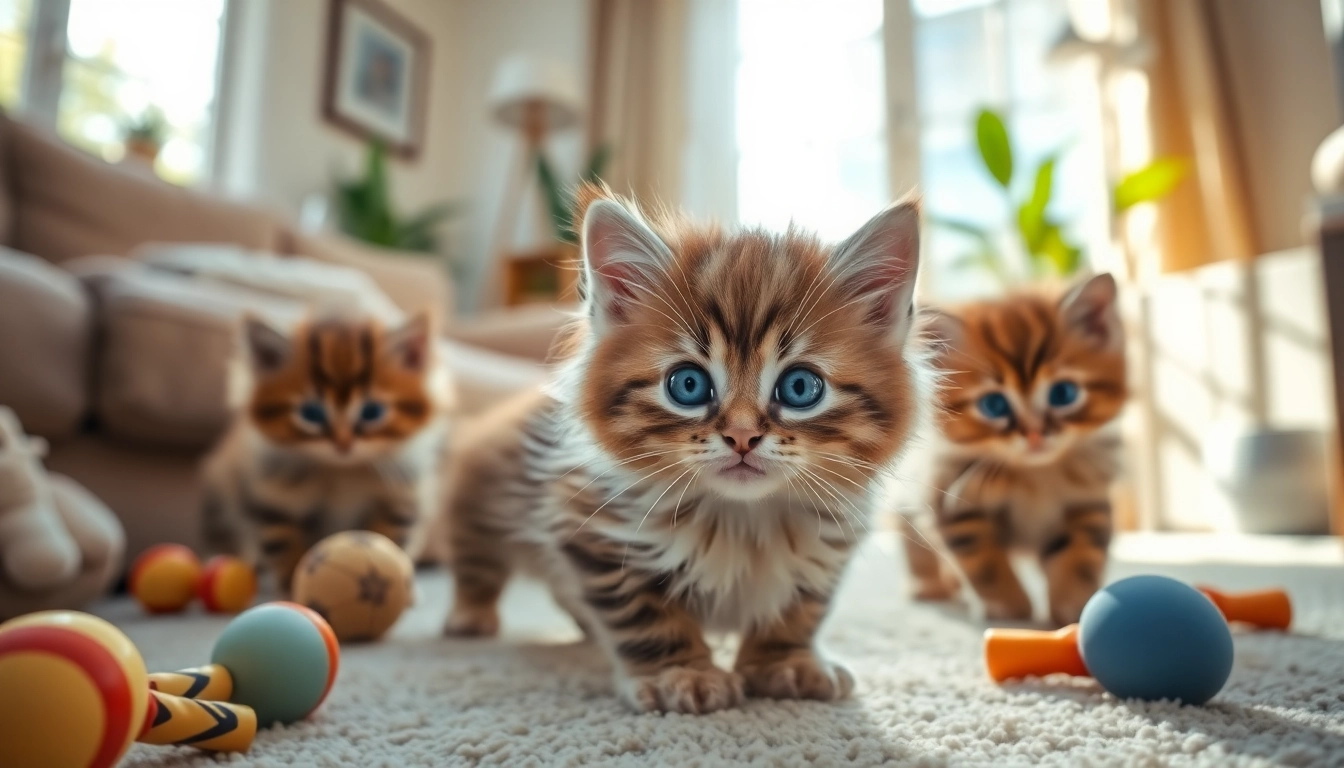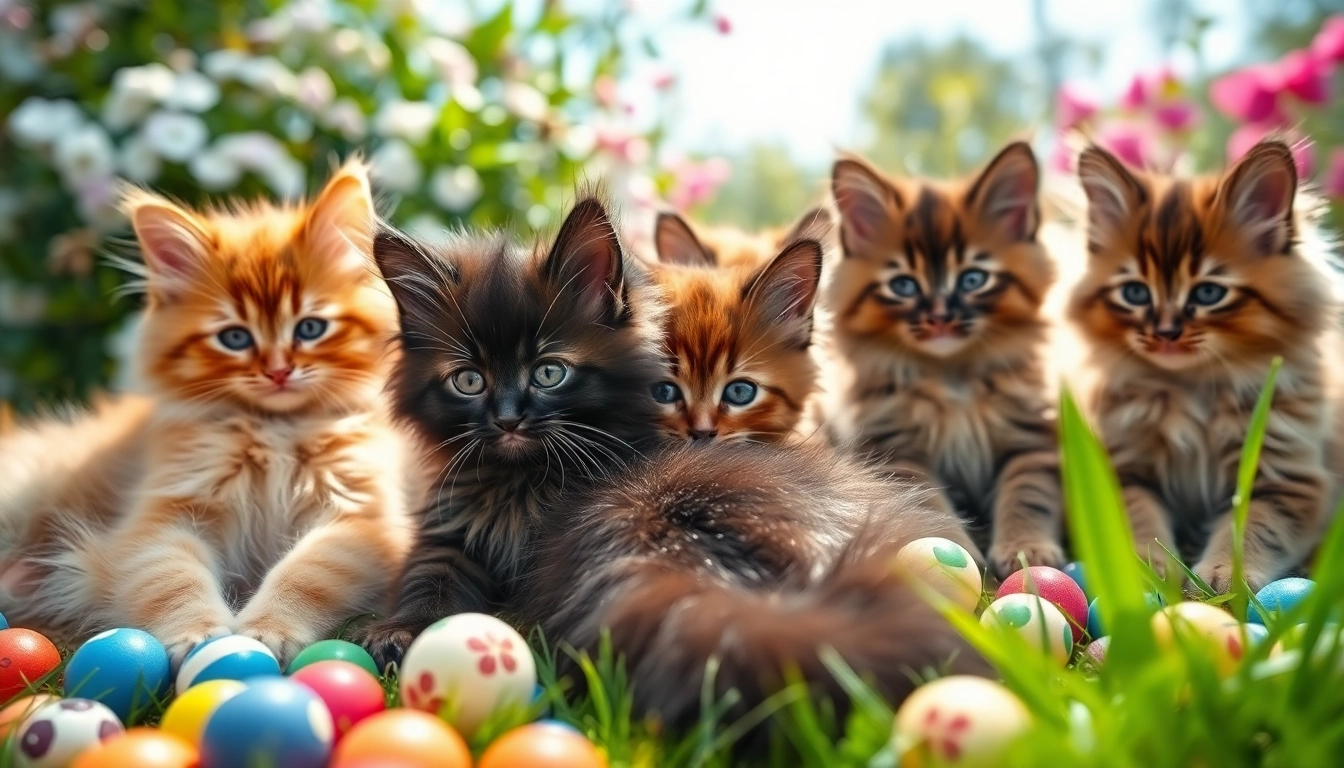Understanding the Bengal Breed
Origins and Characteristics
The Bengal cat is a distinctive breed known for its captivating beauty, lively personality, and unique lineage. Originating from a cross between domestic cats and the Asian leopard cat, Bengals boast a striking appearance characterized by vivid markings resembling those of leopards or ocelots. Their coat features a variety of patterns, including spots and marbling, which are not only eye-catching but also serve the purpose of camouflage in the wild. History indicates that the first intentional breeding of Bengals began in the 1970s when Jean Sugden Mill founded the Bengal breed.
Bengals are medium to large in size, with powerful bodies, broad shoulders, and strong legs. They are known for their athleticism and agility, often displaying playful behavior. Alongside this physical prowess, Bengals possess glossy coats that can come in various colors, including brown, silver, snow, and charcoal. The breed’s allure continues to grow, making them a sought-after choice among cat enthusiasts and families alike. If you’re looking to bring one of these exceptional pets into your home, it’s essential to find reputable Bengal breeders Orange County.
Behavior and Temperament
Bengal cats are renowned for their energetic and playful nature. Unlike many other breeds, they require significant mental and physical stimulation to thrive. Their high intelligence allows them to learn tricks and commands quickly, making interactive playtime and puzzle toys essential for their well-being. Bengals are also known for their social personalities; they thrive in multi-pet households and often develop strong bonds with their human families. However, they can be territorial, particularly if not socialized correctly from a young age.
In terms of temperament, Bengals are confident and curious. They exhibit a range of playful behaviors that can include climbing, jumping, and even swimming. Their vocalizations can vary; they may chirp, trill, or meow to communicate their needs and emotions. Bengals typically enjoy exploring their environment and may need higher walls or cat trees to satisfy their adventurous nature. Understanding these traits is vital for owners, as it helps in creating an enriching environment that meets their Bengal’s needs.
Common Health Considerations
While Bengals generally enjoy good health, they can be prone to specific hereditary issues that potential owners should be aware of. Some common concerns include Hypertrophic Cardiomyopathy (HCM), a condition affecting the heart, and patellar luxation, where the kneecap slips out of place. To mitigate these risks, responsible breeders conduct health screenings and genetic testing.
Regular veterinary check-ups are crucial for early detection of health issues. Potential Bengal owners should ensure that their chosen breeder provides health guarantees and has a solid reputation for prioritizing the health and genetics of their cats. Being informed about potential health issues can make a significant difference in a Bengal’s overall quality of life and longevity.
Choosing the Right Bengal Breeder in Orange County
What to Look For in a Breeder
Selecting the right Bengal breeder is crucial for ensuring that you adopt a healthy, well-socialized kitten. When searching for breeders in Orange County, consider their registration with organizations such as TICA (The International Cat Association) or CFA (Cat Fanciers’ Association). These affiliations are often indicative of a breeder’s commitment to ethics and best breeding practices.
Physical conditions also matter. A responsible breeder maintains clean and safe environments for their cats. Look for signs of commitment to animal welfare, such as spacious, sanitary living areas and proper food and care. A reputable breeder will also be open to sharing information about their breeding practices, including the lineage of their cats, health testing results, and their overall breeding philosophy. It’s important to choose a breeder who focuses on the breed’s characteristics and wellness.
Questions to Ask Potential Breeders
When interviewing potential breeders, having a list of insightful questions can help you gauge their level of knowledge and honesty. Consider asking the following:
- What health tests have been performed on the parents?
- Can you provide references from previous kitten buyers?
- What is the socialization process for the kittens?
- Do you offer a health guarantee?
- How do you handle genetic issues should they arise?
Asking these questions not only demonstrates your commitment as a prospective owner but also shows the breeder that you take the responsibility of pet ownership seriously. A quality breeder will be more than happy to answer your queries in detail, reflecting their dedication to the welfare of their cats.
Evaluating Breeder Reputation
Assessing a breeder’s reputation is essential to ensure a positive experience. Research online reviews and testimonials, focusing on feedback related to the health and temperament of the kittens purchased from them. Active participation in local cat shows or organizations showcases a breeder’s commitment to the breed and community.
Additionally, consider visiting in-person if possible. Meeting the breeder and observing their cattery environment can reveal a lot about their breeding practices. Watch how they interact with both the kittens and the adult cats; this can give insight into their attentiveness and care. A breeder who is willing to answer your questions and welcomes visitors likely prioritizes the welfare of their animals.
The Adoption Process: What to Expect
Understanding Adoption Fees and Contracts
The adoption fee for a Bengal kitten can vary widely based on various factors, including pedigree, breeder reputation, and regional demand. Generally, fees range between $1,500 and $3,000. Understanding this cost is crucial, as it often reflects the breeder’s commitment to responsible breeding practices, including health testing and socialization of the kittens.
A reputable breeder will typically require you to sign a contract when adopting a kitten. This agreement should cover the terms of sale, health guarantees, and policies regarding returns or rehoming. Make sure to read this document carefully, as it protects both you and the breeder in the event of unforeseen circumstances.
Preparing Your Home for a Bengal Kitten
Before bringing your Bengal kitten home, preparation is key to ensuring a smooth transition. Bengals are active and curious, necessitating a safe environment free from hazards. Here are several steps to consider:
- Secure cords and small items that the kitten might swallow.
- Provide a designated sleeping area with a cozy bed and familiar scents.
- Invest in scratching posts and toys to keep them entertained.
- Have food and water dishes ready, along with high-quality kitten food.
- Create a litter box area that is easy to access.
It is also beneficial to dedicate time to kitten-proofing your home. Blocking off areas that could lead to dangerous encounters, like windows and stairs, will contribute to your kitten’s safety and well-being.
First Days with Your New Bengal Kitten
The initial days after bringing your Bengal kitten home can be both exciting and overwhelming. It’s essential to provide a calm and secure environment. Allow your kitten to explore new surroundings at their own pace. Be patient if they hide initially; this is a natural reaction to an unfamiliar environment.
Introduce them slowly to family members and other pets, ensuring the experiences are positive. Gradual socialization can help ease stress and foster a friendly relationship between all parties involved. Remember, Bengals thrive on interaction, so take the time to play and engage with your new furry friend often.
Responsible Breeding Practices
Importance of Ethical Breeding
Ethical breeding practices are paramount to the preservation and quality of the Bengal breed. Responsible breeders prioritize the health and well-being of their cats over profit. This includes ensuring a diverse gene pool to minimize genetic diseases and maintaining transparency throughout their breeding process. Ethical breeders are also committed to the lifelong support of their kittens, advising owners throughout the life of the cat.
Health Testing and Pedigree Validation
Health testing is a critical component of responsible breeding. Breeders should conduct health screenings for common Bengal ailments such as HCM. Documentation of these tests gives prospective owners peace of mind regarding the health of their potential pet. Furthermore, validating the pedigree of their cats ensures that each kitten inherits desirable traits and maintains the breed standard.
Supporting Local Bengal Breeders
Supporting local Bengal breeders in Orange County can contribute positively to the breed’s community. Purchasing from breeders that prioritize ethical practices helps sustain a healthy gene pool and diminishes the impact of irresponsible breeding practices that are unfortunately prevalent in the industry. By choosing local breeders, you not only gain a furry companion but also support the hardworking individuals committed to the welfare of Bengal cats.
Community Resources and Support
Local Bengal Cat Clubs and Events
Joining local Bengal cat clubs or attending events is an excellent way to connect with fellow Bengal enthusiasts and gain support from the community. These clubs often offer educational workshops, breed-specific information, and social events that provide opportunities for networking. Becoming involved can also deepen your knowledge about caring for your Bengal, as well as introduce you to potential breeders or support groups.
Online Communities and Forums
The internet hosts numerous platforms for Bengal cat owners. Online forums and social media groups allow for the exchange of tips, experiences, and support. Participating in these communities can offer valuable insights into Bengal care and troubleshooting, which can be particularly helpful for new owners. Additionally, they can provide a source for sharing stories and advice about training, health issues, and socialization.
Continued Education on Bengal Care
Caring for a Bengal involves staying informed about the breed and best practices over time. Engaging in continuous education allows owners to adapt their care strategies as their pet grows and develops. This can include understanding aging issues, dietary needs, and behavioral changes. Resources such as veterinary advice, pet care books, and educational videos can help guide owners in providing optimal care.



